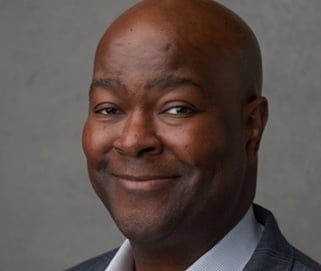Kids have lots to learn about life, so it’s not surprising that many people list their parents as key mentors. I certainly do.
When I had to give my first presentation in school, my dad gave me some sage advice about public speaking. This was advice he tested every Sunday when he delivered the sermon to his congregation in a large church in Chicago: 1) Stand up to be seen. 2) Speak up to be heard. 3) Sit down to be appreciated. That is something that has influenced me. I try to be conscious of people’s time and attention span, and to the context of what I’m saying. When it comes to making a presentation, I get up, communicate and sit down.
As I take the helm at CUES, I’ve been reflecting a lot on mentors and the role they play in our mission to develop talent in the credit union movement. I see three key ways that mentors can help other people progress professionally and personally. Here they are, with more examples from my personal experience.
- Mentors help build knowledge base. My first mentors in business were the board members at the Chicago credit union where I had a high school internship. A senior, I was just a kid who was good at math. The board members’ willingness to have me apply that talent for the credit union drove me to learn more about income statements, transactions, cash flow, benefits of membership, and how share accounts and loans work. The experience opened a door to walk though: I credit these mentors with pointing me toward a career in business, with supporting what I wanted to do in life.
- Mentors help expand network and influence. After getting my MBA, I worked for Procter & Gamble, a huge organization composed of highly competitive personalities. One of my mentors there—then President/Chief Operating Officer Durk Jager—helped me better understand the people aspect of business. He said you could have great technical mastery, analytical skill, and strategic thinking skills but, at the end of the day, in order to get anything done, people are going to have to work with you. Working really well with others is the only way you’ll be able make the transition from individual contributor to leader, Jager taught me. Other mentors in my career have helped me add key people to my professional network.
- Mentors help identify the forest when it’s lost in the trees. I am a very focused and driven individual. That’s a double-edged sword. When you have these qualities, you can focus so much on opportunity or challenge that you can lose perspective on the situations you encounter. You need someone to provide objectivity and help pull you back out of the details. A teacher by training and an amazing professional, Dave Serlo of PSCU taught me to take a step back and look at any situation I was confronting, to see how it came into being, to understand the fuller context and gain perspective on how to move forward.
CUES is an organization chock full of people that could be your next—and most valuable—mentor. When you do things like become a CUES member, attend CUES meetings, participate in the CUES Net listserv, or even comment on a CUES Skybox blog post or Credit Union Management magazine article, you might get great mentoring counsel from your peers in the process.
I want to end by saying that there’s a fallacy that you reach a certain point in your career and you don’t need mentors anymore. That’s not true. You can never have enough mentors, and they can always help. I’m establishing new mentor relationships today. Maybe with you. If you have feedback on CUES or its offerings, I’d love to hear your thoughts.








